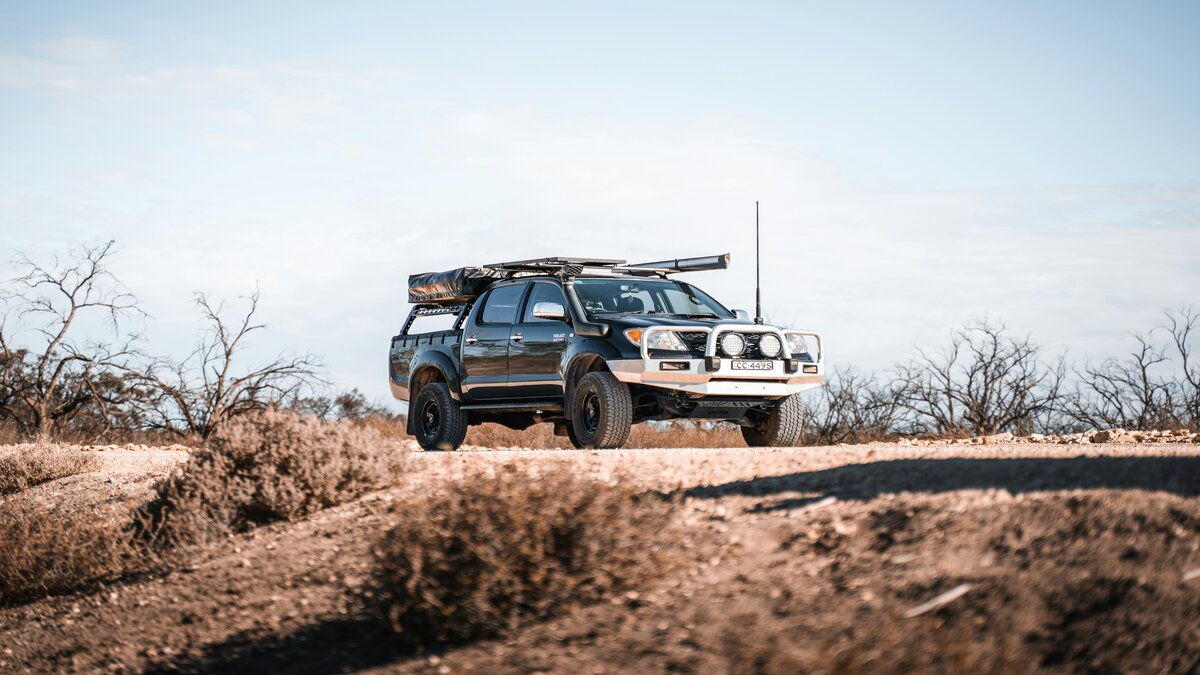Quite apart from the cost of buying a car, there are a slew of ongoing expenses that all car owners face. So, buckle your seatbelts and read on for a breakdown of how much the average Aussie household can expect to spend on their cars each year.
Below is a breakdown of the weekly average cost of car ownership per household, based on capital cities data from the Australian Automobile Association's (AAA) Transport Affordability Index for the December 2024 quarter.
|
Cost breakdown |
Weekly estimated cost ($) |
|
Car loan payments |
$209.78 |
|
Fuel |
$90.88 |
|
Car insurance |
$53.60 |
|
Road tolls |
$37.52 |
|
Servicing and tyres |
$36.65 |
|
Registration, compulsory third party (CTP) insurance, and licensing |
$33.68 |
|
Roadside assistance |
$2.46 |
|
Total |
$462.11 |
Source: AAA Transport Affordability Index
Ongoing costs of car ownership
1. Car loan costs
Car loans rank as the biggest ongoing cost of owning a car with very little variation in cost between capital cities and regional centres. That's because car prices, car loan interest rates, terms, and conditions tend to be fairly standard across geographical areas.
Car loan repayments are affected by:
-
The age of the car and what make/model the car is. Older cars may be lower cost but can attract higher interest rates if they're considered to pose a greater risk to the lender.
-
Your credit history. Lenders may offer different interest rates to people in different credit score bands. The higher your credit score, the better chance you have of securing a lower interest rate.
-
Your financial status. Factors such as your current income, other loans or credit you might be paying off, and your spending habits can influence a car loan interest rate.
-
The lender itself. Some lenders will offer lower car loan interest rates than others owing to market competition, their lending policies, and business models.
Based on the average weekly cost of the eight capital cities, car loan repayments can cost an average of $10,908.63 a year.
|
City |
Weekly car loan payments |
Rank |
|---|---|---|
|
Perth |
$212.67 |
1 |
|
Canberra |
$210.87 |
2 |
|
Sydney |
$210.69 |
3 |
|
Melbourne |
$209.84 |
4 |
|
Hobart |
$209.01 |
5 |
|
Adelaide |
$208.99 |
6 |
|
Darwin |
$208.34 |
7 |
|
Brisbane |
$207.84 |
8 |
|
Capital Average |
$209.78 |
Savings tip: There are plenty of competitive car loan products on the market and getting one with a low interest rate can reduce payments considerably. Below is a table of some of the best car loan rates currently on the market:
| Lender | Car Loan | Interest Rate | Comparison Rate* | Monthly Repayment | Interest Type | Vehicle Type | Maximum Vehicle Age | Ongoing Fee | Upfront Fee | Total Repayment | Early Repayment | Instant Approval | Online Application | Tags | Features | Link | Compare | Promoted Product | Disclosure |
|---|---|---|---|---|---|---|---|---|---|---|---|---|---|---|---|---|---|---|---|
5.99% p.a. | 7.12% p.a. | $580 | Variable | New | No Max | $8 | $400 | $34,791 |
| Promoted | Disclosure | ||||||||
6.52% p.a. | 6.95% p.a. | $587 | Fixed | New, Used | No Max | $0 | $350 | $35,236 |
| Promoted | Disclosure | ||||||||
6.28% p.a. | 6.28% p.a. | $584 | Fixed | New | No Max | $0 | $0 | $35,034 |
| Promoted | Disclosure |
2. Fuel
Fuel costs are one of the more high-profile ongoing expenses of owning a car. The AAA has found the average Australian household spends more than $90 a week on fuel - or $4,726 a year. It also doesn't help the government tax on fuel exceeds 50c per litre and is increased in-line with inflation regularly.
But fuel costs dropped considerably towards the end of 2024, thanks to lower international petrol prices and slowing global demand.
Brisbane took the dubious honour of having the most expensive petrol of the Australian capital cities in 2024, with Darwin the cheapest. Not surprisingly, regional areas faced considerably higher fuel costs than Australia's capital cities, paying an average $93 a week.
|
City |
Weekly cost of fuel |
Rank |
|---|---|---|
|
Brisbane |
$94.53 |
1 |
|
Sydney |
$93.80 |
2 |
|
Canberra |
$92.75 |
3 |
|
Melbourne |
$91.66 |
4 |
|
Hobart |
$90.65 |
5 |
|
Adelaide |
$89.32 |
6 |
|
Perth |
$87.55 |
7 |
|
Darwin |
$86.81 |
8 |
|
Capital Average |
$90.88 |
Source: AAA Transport Affordability Index
Savings tip: There can be a variation of as much as 20 cents per litre at different petrol stations in the same geographical area. To help you find the best-priced fuel, there's no shortage of smartphone apps designed to do just this. Check out apps like PetrolSpy, GasBuddy, Fuel Map, or MotorMouth.
3. Car Insurance
Car insurance is a necessity and in the case of Compulsory Third Party (CTP) insurance, it's compulsory. CTP insurance covers drivers for the liability costs of causing injury or death to other people if you, or anyone driving your car, is at fault in an accident. (See Registration, CTP & Licensing below.)
While that's the mandatory base for all car owners (and not included in the AAA's insurance costings), it's highly recommended drivers take out extra insurance to cover more circumstances. This includes:
-
Third party property damage. Covers you if you cause damage to someone else's property (for example, their car or home)
-
Third-party fire and theft insurance. Covers the same as above, as well as coverage if your car is damaged by fire or stolen
-
Comprehensive car insurance. The most extensive (and generally most expensive) form of cover. It provides full coverage for damage, theft, and damage to the property of others.
The cost of a car insurance premium varies based on:
-
Your car
-
Your age
-
Your driving history
-
Your gender (The data doesn't lie - women are involved in fewer car accidents than male drivers and make fewer insurance claims.)
-
Your suburb
-
And - depending on the policy - many other things, such as how far you travel, where you keep your car overnight, and even the colour of your car. (Darker colours like black or charcoal grey can sometimes attract higher premiums than for lighter colours such as white, owing to their lower visibility.)
Fortunately, Australia's car insurance market is very competitive, and it pays to take advantage of that by shopping around to obtain quotes from different providers every year when it comes time to renew your policy.
According to AAA's data on the average weekly household cost of comprehensive car insurance for both new and used cars, prices between the capital cities can vary significantly. On average, drivers in Sydney are paying $3,706 a year on car-related insurance compared to those in Hobart, paying $2,202 - that's more than $1,500 a year difference. As we covered earlier, geography has a significant bearing on insurance costs and there's not too much you can do about that.
|
City |
Weekly cost of comprehensive car insurance |
Rank |
|---|---|---|
|
Sydney |
$71.27 |
1 |
|
Melbourne |
$68.63 |
2 |
|
Darwin |
$53.44 |
3 |
|
Adelaide |
$49.68 |
4 |
|
Brisbane |
$48.87 |
5 |
|
Canberra |
$47.69 |
6 |
|
Perth |
$46.98 |
7 |
|
Hobart |
$42.35 |
8 |
|
Capital Average |
$53.60 |
Savings tip: Shopping around each renewal can literally save you hundreds as many providers increase premiums year-on-year by default. Former Australian Competition and Consumer Commission chairman Alan Fels estimates Australians pay about $3.6 billion every year in 'loyalty taxes' (also known as lazy tax) simply by staying with their current insurer.
4. Road tolls
It's hard to believe road tolls outrank car maintenance costs according to national data, but road rolls literally take a greater toll on drivers in some localities compared to others. AAA's data compares only Australia's three largest cities with Sydney being the most expensive at around $60 a week in toll costs for the average household compared to the cheapest, $25 a week for Brisbane.
When you consider the annual costs: $3,120 for Sydney, $1,416 for Melbourne, $1,316 for Brisbane, the costs can add considerably to other ongoing car expenses.
Savings tip: Selecting 'avoid tolls' on navigation apps like Google Maps or Waze can find you alternative routes to bypass toll roads. This can be useful if you're able to pre-plan your trip but if you need to use toll roads for convenience or to get to a destination in a timely manner, it pays to have an account set up with the toll services provider which may lower costs and help avoid future invoices with service fees on top.
5. Servicing and tyres
There is no dodging regular servicing and maintenance costs if you want your car to operate smoothly and hold its value. Even routine services can be surprisingly expensive, let alone if your car needs further work, such as a part replaced or other repairs. Many new cars come with 'capped price servicing', which puts a ceiling on the cost of your services for a period of time but for others, it pays to shop around.
As you can imagine, the costs of maintaining a car will vary widely as there are many things - expected and unexpected - that may require attention. AAA found the average capital city household paid $1,905 a year in servicing and tyre replacement costs with Canberra leading the nation with an average annual bill of $2,463 a year.
|
City |
Weekly cost of servicing and tyres |
Rank |
|---|---|---|
|
Canberra |
$47.37 |
1 |
|
Perth |
$37.69 |
2 |
|
Melbourne |
$37.63 |
3 |
|
Sydney |
$37.09 |
4 |
|
Darwin |
$36.63 |
5 |
|
Hobart |
$34.96 |
6 |
|
Brisbane |
$31.14 |
7 |
|
Adelaide |
$30.69 |
8 |
|
Capital Average |
$36.65 |
Savings tip: Using smaller local mechanics can be cheaper than going to an official dealership while doing just as good a job (but make sure you check the terms of your contract, particularly if you've signed up to an extended warranty for your car). The ACCC has made it clear car owners are legally entitled to shop around for the best service price without voiding the manufacturer's warranty. Ask around for personal recommendations of a good, fair-priced mechanic or check online reviews.
5. Registration, CTP, and licensing
Any car driven on a public road must be registered with your state or territory's Department of Transport and operated by a licensed driver. Registration will typically cost you an upfront registration fee as well as an ongoing annual or semi-annual fee. Typically included in the cost of registration is the compulsory CTP car insurance premium. Then you'll also need to pay to have a driver's license renewed every few years.
According to AAA's report, the average annual cost of registration, CTP, and licensing for a two-car Australian family is $1,751 in capital cities and $1,596 in regional areas.
Again, these costs vary significantly from city to city. For example, a Canberra household ($2,240 annually) will pay almost $1,000 a year more in rego and licensing costs than a Hobart household ($1,294 annually).
|
City |
Weekly registration, CTP & license fees |
Rank |
|---|---|---|
|
Canberra |
$43.08 |
1 |
|
Sydney |
$38.75 |
2 |
|
Perth |
$37.59 |
3 |
|
Melbourne |
$35.75 |
4 |
|
Darwin |
$33.12 |
5 |
|
Brisbane |
$28.77 |
6 |
|
Adelaide |
$27.39 |
7 |
|
Hobart |
$24.89 |
8 |
|
Capital Average |
$33.68 |
Savings tip: Depending on where you live, you may have the option of paying your registration either annually, semi-annually, or sometimes quarterly. You may be able to save a considerable sum by taking the annual option.
What's not included?
There's a major financial hit that's not included in the AAA data and that's depreciation. As a general rule, cars are a terrible investment, at least in a financial sense. The instant you drive out of a dealership in a brand-new car, your car's value can fall by as much as 10% or more - and it only goes downhill from there. All cars depreciate over time, and some do it faster than others. In some cases, by the time you try to sell your car, you may have lost thousands of dollars even though your car is not that old and in good condition.
No matter what make or model you're interested in, there's a simple formula to calculate a car's approximate depreciation rate. You can use Redbook, or similar sites, as a guide for your vehicle's current value. Here's the easy formula:
-
Find the difference between the new car value and its value today
-
Divide that difference by the new-car value, then multiply by 100
As an example:
-
$35,880 (new-car value) - $23,700 (car's current value) = $12,180
-
$12,180 divided by $35,880 x 100 = 33.94% (that's the depreciation rate)
Savings tip: Some cars hold their resale value better than others and it pays to purchase those in the first place. Check the Australian Automotive Dealers Assocation (AADA) for its regular Automotive Insight Report (AIR) which keeps track of used car market data. At various times, second-hand vehicles of various models can fetch handsome resale prices, sometimes above the price of new models depending on supply and demand. As at March 2025, these include Toyota Land Cruiser, Suzuki Jimny, and Toyota Yaris Cross vehicles. You can also do your bit to reduce how much your car depreciates through regularly servicing your car, keeping it well maintained and cleaned, and storing it in a garage to minimise environmental wear and tear.
Listen to Savings.com.au's resident motoring journalist Alexi Falson speaking on the Savings Tip Jar podcast on how to avoid a depreciation hit on your car.
How much does this all cost in total?
Simply put, a lot. All of these costs can seriously add up and, unfortunately, there's no real way to avoid them. By owning and driving a car you have to commit to paying for fuel, registration, servicing, and depreciation.
RACQ's Vehicle Operating Cost Report 2024 outlines the average running costs for private vehicles (in Queensland, but you'll get the picture for all states and territories) - and the results are not particularly pretty.
|
Vehicle Category |
Average Monthly Cost |
Average Annual Cost |
|---|---|---|
|
Light cars |
$1,002.41 |
$12,028.91 |
|
Small cars |
$1,202.52 |
$14,551.70 |
|
Medium cars |
$1,720.74 |
$20,648.90 |
|
People movers |
$2,067.86 |
$14,814.32 |
|
Light SUVs |
$1,095.94 |
$13,151.33 |
|
Small SUVs |
$1,239.54 |
$14,994.48 |
|
Medium SUVs |
$1,632.05 |
$19,566.40 |
|
Large SUVs |
$1,611.12 |
$19,333.39 |
|
All terrain |
$2,147.72 |
$25,772.67 |
|
Light commercial 4x2 |
$1,483.27 |
$17,779.26 |
|
Light commercial 4x4 |
$1,601.76 |
$19,221.10 |
|
Premium light commercial 4x4 |
$1,917.65 |
$23,001.80 |
Source: RACQ Vehicle Operating Cost Report 2024
So, the mere act of owning your car can cost you $12,000 to almost $26,000 a year - depending on your vehicle. Here's where a wise old saying comes into play: drive the lowest-priced car your ego allows you to drive. Choosing substance (or value) over style may save you thousands of dollars a year.
Buying vs Renting a Car
If this has put you off buying a vehicle, perhaps you could consider renting one just for specific occasions. This can work well for those living in inner-city areas well connected with public transport but who may require a private use vehicle from time to time.
As well as established car rental companies, there are also some more affordable peer-to-peer car sharing or car subscription services that allow you to book and use cars for a specified time period.
Let's take a small car, like a Toyota Yaris for example. Its listed price is currently around $28,500 (as at March 2025) and, according to the RACQ, its average annual running cost ends up at around $14,551.70 a year, or $280 weekly. Comparatively, renting the same car via GoGet Car Share under its GoFrequent Plan (driving once a week or more) will cost you:
-
$30 a month fee ($6.92 weekly)
-
$89 for day rental including 100 kilometres of travel (with fuel, insurance, and roadside assistance also included)
-
or $8.30 per hour at $0.48 per kilometre travelled
(There are different rates for students, seniors, or businesses.)
Depending on how often you require the vehicle and how far you're travelling, the cost can be considerably under $280 a week and apart from an ongoing membership fee, you don't pay if you don't use - unlike many fixed car ownership expenses.
If this option could meet your needs, here are a few suggested services to check out.
-
Karmo
-
Carly
-
Motopool
-
Carbar
-
Simplr
-
Turo
-
Flexicar
-
Drive mate
Savings.com.au's two cents
If you're a vehicle owner, try using each of our savings tips over the course of a year to see how much of a difference it can make to your running costs. Here's a quick run-through:
-
Consider whether it's worth refinancing your car loan to secure a lower car loan interest rate, or better terms and conditions that suit your circumstances
-
Use smartphone apps to find the cheapest petrol nearby
-
Use comparison sites, cruise the web, or ring around to find the most suitable and affordable insurance policy for your vehicle and circumstances
-
Check whether a local mechanic will be cheaper than an official dealership when the time comes for a service
-
Pay for your registration annually instead of semi-annually
-
Invest some time into caring for your car to do your bit to avoid excessive depreciation
If you find owning a car too expensive for how much you use it, jump on the bus or train and when you do need your own wheels, check out the suggested car sharing or subscription services. Putting a bit of time into keeping your car expenses in check can put hundreds, if not thousands, of dollars a year back into your pocket.
First published on August 2019






 Denise Raward
Denise Raward
 Harry O'Sullivan
Harry O'Sullivan